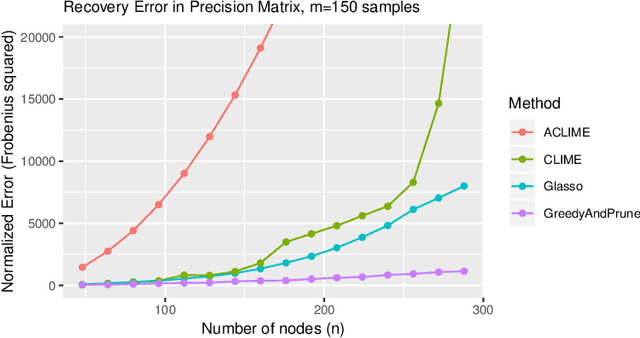Learning Some Popular Gaussian Graphical Models without Condition Number Bounds
Paper and Code
May 03, 2019



Gaussian Graphical Models (GGMs) have wide-ranging applications in machine learning and the natural and social sciences. In most of the settings in which they are applied, the number of observed samples is much smaller than the dimension and they are assumed to be sparse. While there are a variety of algorithms (e.g. Graphical Lasso, CLIME) that provably recover the graph structure with a logarithmic number of samples, they assume various conditions that require the precision matrix to be in some sense well-conditioned. Here we give the first polynomial-time algorithms for learning attractive GGMs and walk-summable GGMs with a logarithmic number of samples without any such assumptions. In particular, our algorithms can tolerate strong dependencies among the variables. We complement our results with experiments showing that many existing algorithms fail even in some simple settings where there are long dependency chains, whereas ours do not.
 Add to Chrome
Add to Chrome Add to Firefox
Add to Firefox Add to Edge
Add to Edge